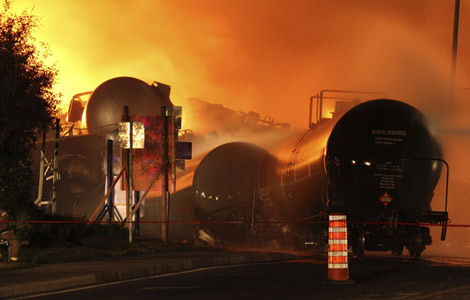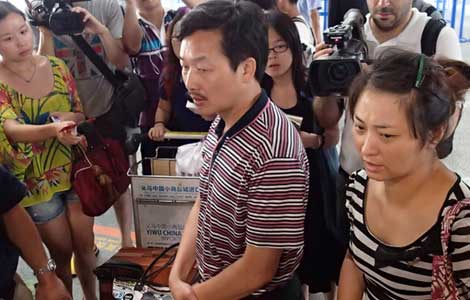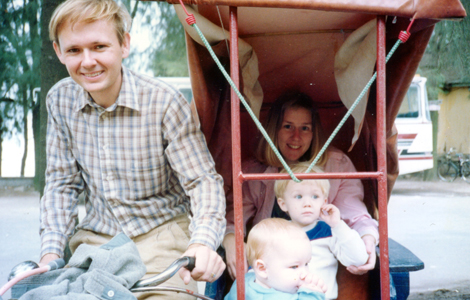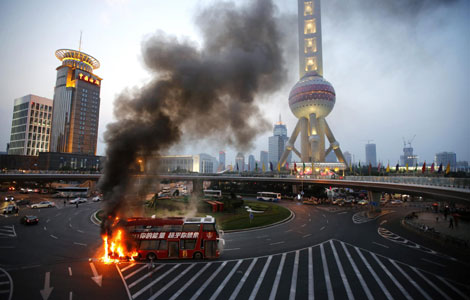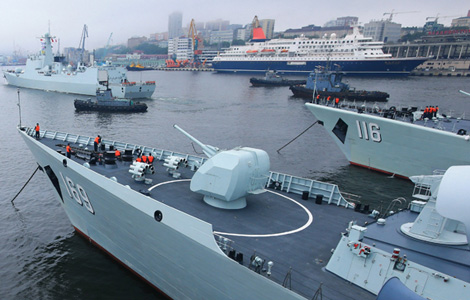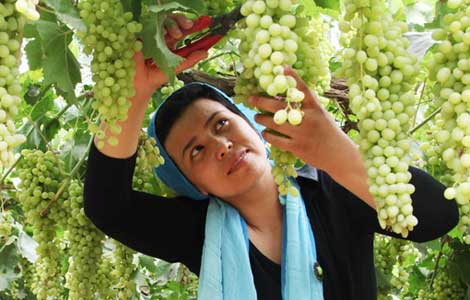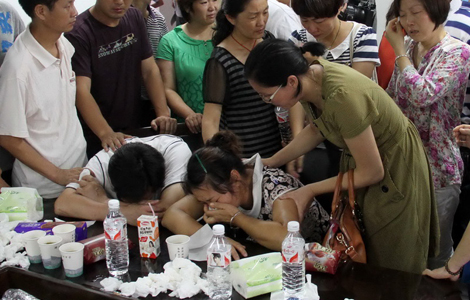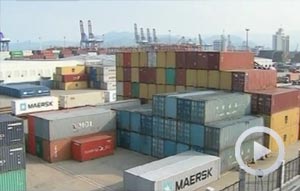Kaesong complex to reopen
Updated: 2013-07-08 01:55
By ZHOU WA (China Daily)
|
||||||||
ROK and DPRK reach agreement on shuttered industrial park
The Republic of Korea and the Democratic People's Republic of Korea agreed to reopen the Kaesong Industrial Complex on Sunday, in a move seen as a temporary abatement of the tensions simmering on the Korean Peninsula.
Work in Kaesong, in the DPRK but home to a number of ROK companies, has been suspended for the past three months after the DPRK tested missiles and issued threats of nuclear attacks.
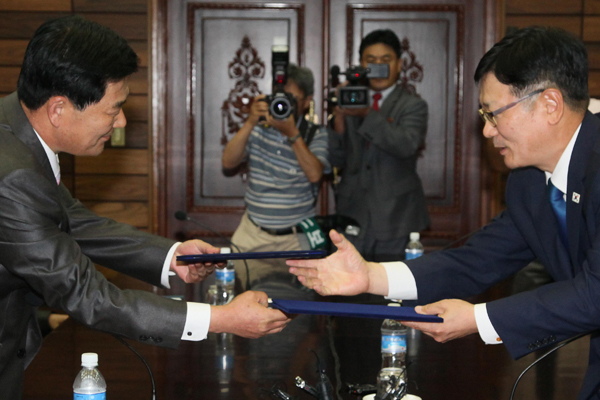 |
|
Suh Ho (right), head of the ROK working-level delegation, exchanges documents with his DPRK counterpart Park Chol-su after talks at the Tongilgak building on the DPRK side of the village of Panmunjom in the Demilitarized Zone on Sunday. |
After grueling 15-hour talks, the ROK and the DPRK said in a joint statement that they had agreed to let ROK companies restart their plants at Kaesong, near the border between the two countries "when (they are) ready to do so".
Under the agreement, ROK businessmen will be allowed to cross the border to check on their facilities at Kaesong beginning on Wednesday.
The agreement shows a favorable trend for ROK-DPRK ties, said Li Qinggong, deputy secretary-general of the China Council for National Security Policy Studies.
"With the agreement, the possibility of direct talks between high-ranking officials from the two sides is increasing," he said.
Gong Yuzhen, a professor on international affairs at Peking University, sees the operation of the industrial park as a barometer for ties between the two nations and the situation on the peninsula.
"The agreement indicates that the tensions on the peninsula are further reduced and Pyongyang's attitude toward its neighbor is becoming milder," Gong said.
But people should remember that the DPRK's attitude toward Seoul and its own foreign policy are likely to swing, he said.
"It is still unclear to what extent Pyongyang would like to show its soft attitude and how long the soft tune will last," Gong said. "The uncertainty of Pyongyang's foreign policy has brought Seoul much concern."
The news was warmly welcomed by Kaesong-based ROK companies.
"I was overcome with emotion and shed tears for a while," said Moon Chang-seop, a top representative of the 123 companies, in an AFP report.
But other businessmen expressed concern that it would be difficult for them to solicit buyers who have left them during the past three months.
The park — built about 10 kilometers north of the border in 2004 as a symbol of inter-Korean cooperation — had previously remained largely resilient to turbulence in the two countries' ties.
Representatives of ROK companies based in the park had repeatedly urged the two countries to hold talks to revive the moribund industrial park.
Some firms have threatened to withdraw, complaining they have fallen victim to political bickering.
The ROK and the DPRK pledged to meet again on Wednesday at Kaesong to discuss details over reopening the zone, including a demand from Seoul that the DPRK guarantee it will never again unilaterally shut down the complex, AFP reported.
It is hard for the DPRK to accept such demands because it will not easily give up the initiative it has gained, Gong from Peking University said.
"Whether the two countries will reach a new agreement on Wednesday is not so important, since the slated agreement could also be broken," Gong said.
"It is more important for the two sides to find practical ways to deepen their trust."
As for the expected discussion on reopening details, Li said Seoul should be practical and not expect too much of Pyongyang.
In February, the DPRK conducted its third nuclear test, which triggered tougher sanctions from the United Nations Security Council.
Most Viewed
Editor's Picks

|

|

|

|

|

|
Today's Top News
Air crash victims' parents leave for US
Ex-rail chief sentenced
Terror law called for after attack
Subsidies aid poor families
13 dead in Quebec train disaster
Premier Li lauds Guangxi's potential
Zhuhai's draft to establish new models
Mining firm confirmed to have polluted S China river
US Weekly

|

|
